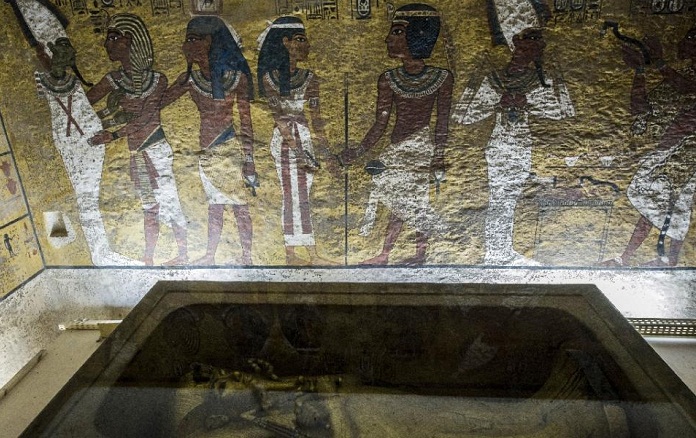Egypt to do more tests on Tut`s tomb in search for Nefertiti

Reeves, who was in Luxor in September to probe his theory, believes one door of Tutankhamun`s tomb could conceal the burial place of Nefertiti.
Antiquities Minister Mamduh al-Damati said more tests will be carried out inside Tutankhamun`s tomb over three days starting Thursday "to see if there are secret chambers behind its walls".
"The search will involve using radar and infra-red technologies," Damati said, adding that they would cause "no damage" to the tomb.
The findings will be announced at a press conference in Luxor on November 28, he said.
Experts carried out a preliminary scan of the tomb earlier this month using infra-red thermography to map out the temperature of its walls.
Damati said at that time that the analysis showed "differences in the temperatures registered on different parts of the northern wall" of the tomb.
The minister and Reeves differ on whose mummy they expect to find.
According to Reeves, professor of archaeology at the University of Arizona, Tutankhamun, who died unexpectedly, was buried hurriedly in an underground chamber probably not intended for him.
His death would have forced priests to reopen Nefertiti`s tomb 10 years after her death because the young pharaoh`s own mausoleum had not yet been built.
But Damati believes that such a chamber, if found adjoining Tutankhamun`s tomb, may contain Kiya, a wife of the pharaoh Akhenaten.
Damati hopes scanning the walls of Tutankhamun`s tomb will reveal "the discovery of the century".
Nefertiti played a major political and religious role in the 14th century BC.
She actively supported her husband Akhenaten -- Tutankhamun`s father -- who temporarily converted ancient Egypt to monotheism by imposing the cult of sun god Aton.
Tutankhamun died aged 19 in 1324 BC after just nine years on the throne. His final resting place was discovered by another British Egyptologist, Howard Carter, in 1922.















































